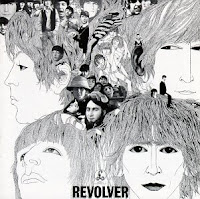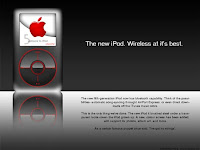
We have seen that, generally speaking, the music industry is slow to embrace new music formats. Radio allowed people to listen to music for free without having to buy a record, cassette tapes allowed listeners to copy tapes or record songs directly from the radio, CD burners allowed us to make high-quality copies of our favorite songs and albums, and digital music online allowed us to share and swap files, which increased music piracy considerably. With all of these technological advancements, the music industry has voiced concern over illegal copying of music effecting its profits. So no matter what direction the music industry takes in the future, chances are the record labels will be unhappy about it.
But what will the future of music be? It's impossible to know for sure, but here are some predictions:
1. Digital music formats will continue to dominate the industry. Because digital music sales have been so incredibly popular, it is unlikely that we will see a shift from the online distribution of music anytime soon. The music industry is generally slow to adapt to new technology, so once it fully embraces iTunes and other online distributors, it will be a long time before we see another format dominate the industry.
2. Digital music will become even more mobile. With the wide availability of wireless Intern et access, digital music players will have the ability to download songs. Right now, iPod users have to download songs on their computer and then upload them to their iPod. Future generations of the iPod will no doubt include wireless access so that users can browse and purchase music from the iTunes Store anywhere. This technology would also allow users to wirelessly network to their computers to download or upload files without having to connect through the computer's USB port.
et access, digital music players will have the ability to download songs. Right now, iPod users have to download songs on their computer and then upload them to their iPod. Future generations of the iPod will no doubt include wireless access so that users can browse and purchase music from the iTunes Store anywhere. This technology would also allow users to wirelessly network to their computers to download or upload files without having to connect through the computer's USB port.
 et access, digital music players will have the ability to download songs. Right now, iPod users have to download songs on their computer and then upload them to their iPod. Future generations of the iPod will no doubt include wireless access so that users can browse and purchase music from the iTunes Store anywhere. This technology would also allow users to wirelessly network to their computers to download or upload files without having to connect through the computer's USB port.
et access, digital music players will have the ability to download songs. Right now, iPod users have to download songs on their computer and then upload them to their iPod. Future generations of the iPod will no doubt include wireless access so that users can browse and purchase music from the iTunes Store anywhere. This technology would also allow users to wirelessly network to their computers to download or upload files without having to connect through the computer's USB port.3. Convergence will continue. The popularity of games like "Guitar Hero" and "Rock Band" has shown us that video gamers are crazy about music, and that the music industry can work with other industries to distribute music. This is a trend that we will likely see continue in the future. With digital TV, the music industry could work with TV producers to include information about particular songs that appear in TV shows and commercials so that viewers can find and download them. Viewers could eventually download music directly from their televisions and upload them to their iPods or computers.
4. The decline of iTunes. Right now, Apple's dominance on the digital music industry is unparalleled. But that could change. So far, Apple has been quick to adapt to an industry that is rapidly changing. However, unless they stop distributing music with DRM, a large part of their loyal customers could switch to another music company that doesn't include these protections.

5. The continuation of music piracy. While the RIAA has gone after companies like Napster and private individuals like college students, piracy and peer-to-peer file sharing will continue in the future. While programs like iTunes include DRM to make it harder to pirate music, there are always those who use technology to try and break these safeguards, and eventually they will succeed. And chances are, just like piracy in the past, it will have little or no effect on the music industry as whole.
No matter what the future brings, we can be sure that the digital music revolution will continue well into the future.







